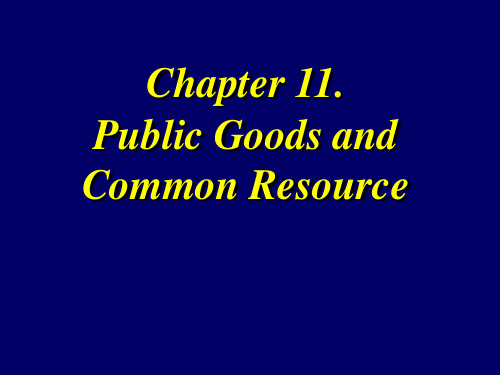
11.1 The Different kinds of goods
When thinking about the various goods in the economy, it is useful to group them according to two characteristics:
Is the good excludable? Can person be prevented from using the good? Is the good rival? Does one person’s use of the
Chapter 11. Public Goods and Common Resource
“The best things in life are free…”
Free goods provide a special challenge for economic analysis. Most goods in our economy are allocated in markets… When goods are available free of charge, the market forces that normally allocate resources in our economy are absent. When a good does not have a price attached to it, private markets cannot ensure that the good is produced and consumed in the proper amounts.
11.2.2 Some Important Public goods
Basic Research: In evaluating the appropriate policy toward knowledge creation, it is important to distinguish general knowledge from specific, technological knowledge. Specific, technological knowledge, such as the invention of a better battery, can be patented. The inventor thus obtains much of the benefit of his invention, although certainly not all of it. By contrast, a mathematician cannot patent a theorem;such general knowledge is freely available to everyone. In other words, the patent system makes specific, technological knowledge excludable, whereas general knowledge is not excludable. The government tries to provide the public good of general knowledge in various ways. Government agencies subsidize basic research in medicine, mathematics, physics, chemistry, biology, and even economics.





